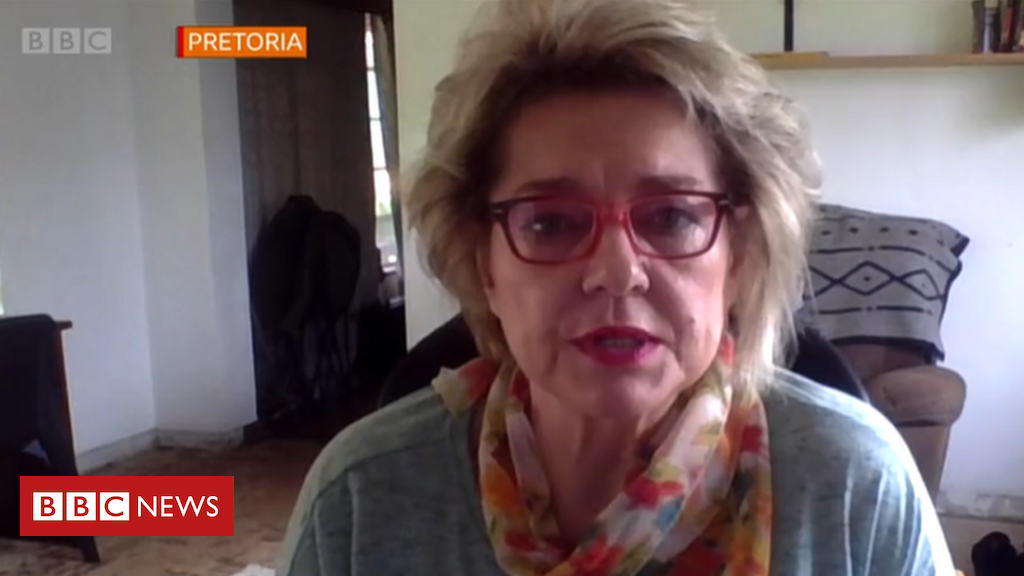Ômicron has mild symptoms so far, says doctor who discovered alternative
4 min read

Patients have reported tiredness and body aches, but no hospitalizations due to the variant in South Africa, according to Dr. Angelique Coetzee.
Angelique Coetzee, the South African doctor who first identified the novel Omicron variant of the coronavirus, says patients infected so far have shown “very mild symptoms” – but more time is still needed to assess the impact on those at risk.
It says the first case was identified around November 18.
“It all started with a patient with mild symptoms. He said he had been very tired for the past two days and had had body aches and a slight headache. Not even a sore throat, but what looked like a sore throat. No cough…no loss. of smell or taste ‘,” he told Dr. Coetzee, in an interview with BBC News.
“Because it was very unusual for this particular patient to have this kind of symptom, I decided to test him,” said the doctor, who then tested all of the patient’s family with positive results. “We ran a quick test, and it came back positive.” For coronavirus, all of them have mild symptoms.
Coetzee says that on the same day, other patients arrived for treatment with the same symptoms, and tests were also positive.
“Patients often complain of body aches and fatigue, and extreme tiredness in young patients, not elderly people. So we’re not talking about patients who go straight to the hospital and are admitted,” Coetzee says.
attributed to him, disclosure
An infographic issued by the South African authorities shows the most common variants of the coronavirus in the country throughout the pandemic. After “Delta Domination” (red spot), Omicron (blue spot) is rapidly gaining ground
Then it alerted the South African health authorities, arguing that what they were seeing did not correspond to the delta variant, which was first identified in India and has become prevalent in the world, including South Africa.
The following week, after genetic sequencing of the samples, it became clear that it was a new variant, B.1.1.529, later named omicron.
“Clinically, what we see in South Africa – and I’m in the focus, providing assistance – are very mild cases. No one needed to be hospitalized,” says the doctor.
“I’ve spoken to colleagues and they have reported the same thing.”
Panic is unnecessary at the moment
When asked if the countries in which the variant has been identified feel needlessly panicked, Coetzee said he thinks they are at the moment.
“The issues should already be circulating in the countries without being noticed. So, at this moment, I would definitely say so. [o pânico é desnecessário]. In a couple of weeks, our assessment may change.”
Cases of an omicron have already been confirmed in the Netherlands, the United Kingdom, Germany, Italy, Denmark, Australia, the Czech Republic, Israel, Belgium, Hong Kong, Botswana and South Africa.
Israel has decided to close its borders to foreigners and Morocco has suspended all flights to the country for the next two weeks.
Countries such as Brazil, Canada, the United States, Iran and European countries have imposed restrictions on travelers coming from countries in the southern region of the African continent.
According to Dr. Coetzee, cases of the omicron variant may run smoothly in countries.
“Countries are dealing with a lot of delta cases. We have a gap, about eight to ten weeks since the last wave of infections and the arrival of this new alternative. So it was easy for us to see that something was different,” the doctor calculated.
“Doctors who focus on the delta can let this go, because it’s easy to happen. If we hadn’t had coronavirus cases for weeks, we wouldn’t have noticed either.”
The omicron variant has attracted the attention of health authorities for the presence of a variety of mutations, which makes it very different from the original covid. There are 50 genetic modifications, 32 of them in the spike protein, that the virus uses to contact a human cell, initiate infection and is also used as a target in vaccines such as those made by Pfizer, AstraZeneca and Janssen.
For this reason, experts fear that current vaccines may be less effective against Omicron, but this has not yet been proven. In addition, immunization manufacturers have already reported that they can quickly adapt vaccines to the new variant, should it prove necessary.
You have seen our new videos on Youtube? Subscribe to our channel!

“Devoted food specialist. General alcohol fanatic. Amateur explorer. Infuriatingly humble social media scholar. Analyst.”




